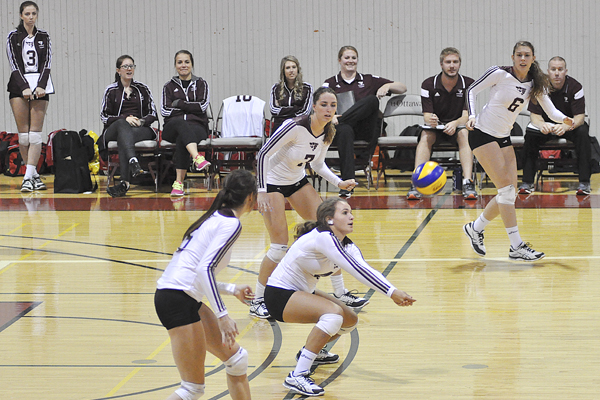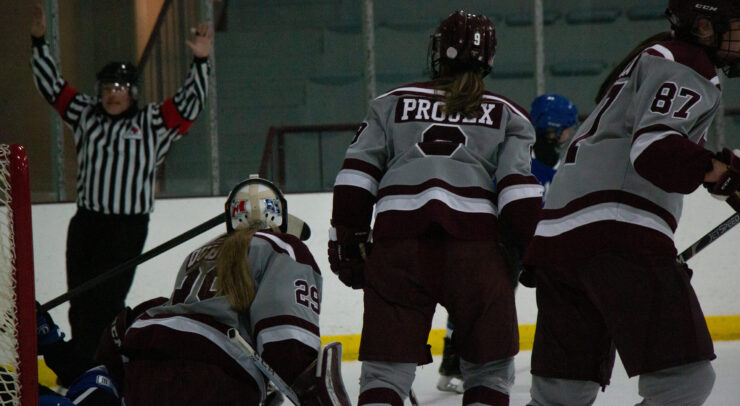INDIGENOUS LANGUAGES DESERVE PRIORITIZATION
We call upon post-secondary institutions to create university and college degree and diploma programs in Aboriginal languages.
– #16 Truth and Reconciliation Commission of Canada’s (TRC) Call to Action, 2015
In 2015, the TRC put out 94 calls to action regarding Canada’s history of genocide of the Indigenous peoples of this land.
Today I want to put the University of Ottawa under the microscope. What have they done towards the fulfillment of Call to Action 16? Is this University doing a good job of answering this call from the TRC?
If the question is if the University is doing a ‘good job’, I’d say they’re doing it, but not necessarily a great job
– Quanah Traviss, Co-President of the Indigenous Student Association and Director of Indigenous Students, UOSU BoD
On top of acting as a representative of Indigenous students at U of O, Traviss studies linguistics with a focus on language acquisition and revitalization.
Cut back to Nov. 2022 at the University of Ottawa Student Union Fall General Assembly. Traviss proposes a constitutional amendment. That amendment allows Indigenous students who are not bilingual in both English and French but speak an Indigenous language to be able to run for an executive position. It passed unanimously.
Now the academic side of things is unfortunately not as simple. The Institute of Indigenous Research and Studies (IIRS) faces an uphill battle. According to U of O’s website, professors are not required to be fully bilingual. It’s also stated that it is “possible to require that the candidate demonstrate a level of active or passive bilingualism in the other official language.” This is because faculty meetings are conducted bilingually, which is why bilingual candidates are often given priority. If you are a U of O student, you may notice that the vast majority of your professors are bilingual.
According to Statistics Canada, 10.5 per cent of all Indigenous Canadians are bilingual. As per the 2021 census there are 1,807,250 Indigenous Canadians. That means roughly 189,761 out of all Indigenous Canadians are bilingual. So of course, it can be assumed that finding Indigenous academics who are also bilingual in both French and English is a massive challenge for the IIRS.
And let’s not forget that this call to action is specifically about programs and courses regarding Indigenous languages, not just Indigenous studies. Approximately 237,420 Indigenous Canadians speak an Indigenous language. I couldn’t even find a number of how many Indigenous Canadians also knew English and French, on top of an Indigenous language. Even Mary Simon, the first Indigenous Governor General in Canadian history, speaks English and Inuktitut but not French.
All of this leads to an unfortunate lack of professors in the IIRS, many courses don’t run most semesters, especially Indigenous language courses. In some cases, professors teaching these Indigenous language courses don’t even know the language they are teaching. According to Traviss, there was a Cree language course that was taught by a professor who was not and did not speak Cree.
Of course, U of O is not the only university that lacks proper fulfillment towards Call to Action 16. It can be argued that there are a lot of barriers, not just the bilingual aspect. But there are schools that have done it right; in 2021, the University of British Columbia became the first University in Canadian history to offer a bachelor’s degree in Indigenous language fluency.
Much like UOSU did, the University needs to consider prioritizing hiring professors who are proficient in an Indigenous language, even those who aren’t bilingual in both official languages. This shouldn’t just be done for all Indigenous students, but also on the merit of being the largest bilingual university in the world. It is the University’s duty to help preserve the Indigenous languages of Turtle Island.
I will now leave you with some parting words from Traviss regarding his feelings after the 2022 UOSU Fall General Assembly.
When I went home that night I knew that I had done something to make this campus a little more welcoming of Indigenous peoples, and that made me happy
– Quanah Traviss, a student who envisions a country where his future children being fluent in their language, Mohawk, is commonplace.









